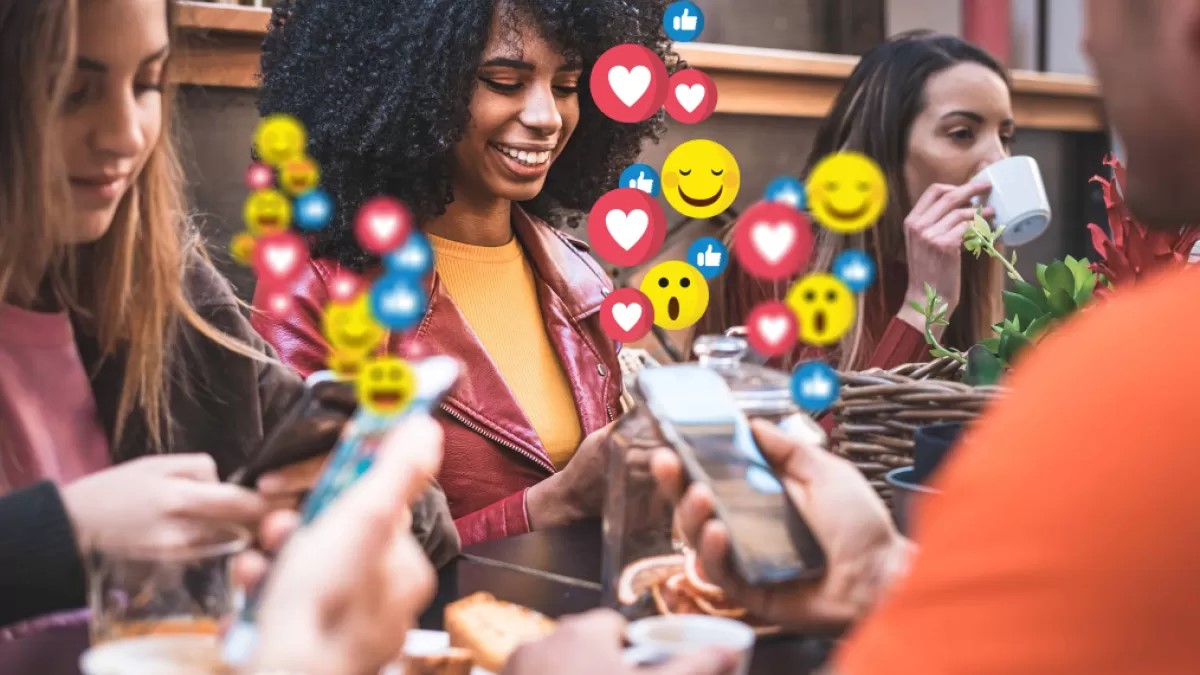Let’s set the scene.
You’re scrolling your phone. You post a photo you kind of like, but not too much, because heaven forbid anyone thinks you’re trying too hard. Five minutes pass. No likes. You suddenly regret the lighting, the caption, your entire face. You delete it.
Or maybe it’s more subtle. You’re at work. You’ve got an idea you know could work, but you keep it to yourself. You nod along with the loud voices in the room and tell yourself, Eh, it’s not worth rocking the boat. Then you stew in silence while someone else says the exact same thing ten minutes later and gets credit.
Sound familiar?
Welcome to the exhausting, invisible grind of approval-seeking—aka the root system of approval addiction and people pleasing behavior.
We’ve all done it. It’s practically baked into us, especially if you grew up being praised for being “good”, “easy”, “likable”, or “low maintenance”. You were trained early: approval gets you love, safety, rewards. But what worked for your eight-year-old self doesn’t work for your grown-up goals.
In fact, it’s the very thing holding you back.
What Approval-Seeking Looks Like (a.k.a. the Greatest Hits of Self-Sabotage)
This habit wears a lot of clever disguises. Some are loud and obvious. Others are whisper-level sneaky.
1. The Serial Over-Explainer
You can’t just say “I can’t make it”. You write a paragraph that includes your work schedule, your dog’s anxiety, and the lunar cycle. You feel the need to justify your “no” like you’re arguing in court — classic people pleasing behavior.
2. The Performance Texter
You read your message four times before sending. You delete emojis, add them back, overthink your punctuation. If the other person takes too long to respond, your inner critic throws a party. This is how approval addiction shows up in the digital age.
3. The Camouflage Artist
Your opinions, music taste, fashion choices, or even food preferences magically shift depending on who you’re with. You’re the human version of a mirror. Everyone likes you — but no one knows you. That’s the cost of seeking others’ approval over your own truth.
4. The Smile-and-Die-Internally Specialist
You’re furious or uncomfortable, but still smiling. You say things like “It’s fine!” and “No big deal!” with the energy of someone suppressing a scream. Another hallmark of being a people pleaser.
5. The Help Vampire
You agree to help everyone — coworkers, acquaintances, that one mom in the group chat — because you want to be seen as generous and easygoing. Meanwhile, your to-do list is on fire. You need to stop being a people pleaser before you burn out.
6. The Social Media Puppet
You post not because you have something to say, but because you want to be seen, praised, validated. If it doesn’t perform, your mood tanks. If it does, your mood spikes — but only for about 20 minutes. This is what happens when you can’t stop seeking validation from others.
Why We Do It (Even When We Know It’s Annoying)
Let’s not beat ourselves up here. This isn’t about being weak or insecure. Approval addiction is a survival instinct that got twisted by culture.
We’re wired to want belonging. Add in a society that rewards perfection, performance, and popularity and you’ve got a recipe for chronic approval-seeking.
The issue is that when you keep outsourcing your self-esteem to everyone else’s reaction, you lose touch with what you actually want, think, like, or value. You become a diluted version of yourself. And you never get to find out how powerful you really are.
If you want to stop seeking validation, you’ve got to start coming home to your confident self.
What To Do When You Feel That Approval Itch Coming On
Here’s how to stop approval seeking, break people pleasing habits, and start building a life that feels real, grounded, and unapologetically yours.
1. Ask: “Would I Still Do This If Nobody Knew?”
Before you post, agree, show up, or sacrifice your sanity for someone else’s comfort — ask yourself that question.
- Would I wear this if I didn’t expect compliments?
- Would I volunteer for this if it wasn’t going to be seen?
- Would I still do this thing if no one gave me credit?
If the answer is no, that’s a red flag. You might be operating from the need to seek external validation.
2. Rehearse Saying No Without a Broadway Monologue
Saying no shouldn’t feel like a performance piece. Try saying, out loud, in front of a mirror or friend:
- “Thanks for thinking of me, but I’m not available”.
- “I can’t take that on right now”.
- “That doesn’t work for me”.
Then shut up. Don’t fill the silence. Don’t over-explain. Just let the no breathe.
(You will feel weird at first. That’s just detox from being a people pleaser. It’ll pass.)
3. Let Yourself Be Slightly Disliked
This is the hardest one. But here’s the truth: if you’re never disliked, you’re probably not being fully honest. Let someone raise an eyebrow. Let them not get you. You’ll survive.
If you’re serious about overcoming people pleasing, you have to be okay with letting go of universal approval.
Being liked by everyone is exhausting and boring. Give people the opportunity to like the real you instead of the curated, self-edited, validation-seeking version.
4. Create a “No-Show-Off Day”
Pick one day a week to do something just for you. No documenting. No posting. No audience. Read a weird book. Take a bath at 2 p.m. Dance like an idiot in your kitchen.
The point is to do something purely for your own joy. Let your inner self remember what it feels like to do things just because—not because they’re impressive or meant to seek validation from others.
5. Write a “Self-Credit” List Instead of Waiting for Compliments
Instead of hoping someone notices your effort, start giving yourself credit like it’s your job:
- “I handled that awkward conversation without flinching”.
- “I said no and didn’t backpedal”.
- “I didn’t care what anyone thought of my loud pants today”.
These wins might not earn claps. But they build real, lasting self-confidence. This is how you stop seeking for validation and start owning your worth from the inside out.
What You Gain When You Stop Performing
Once you finally stop seeking others’ approval, a few beautiful things happen:
- You have way more energy.
- Your decisions get sharper.
- You build real respect (people trust those who trust themselves).
- You start liking yourself because you’re finally being yourself.
- You lose people who only liked the fake version and make space for people who like the real thing.
Most importantly, you stop feeling like a human audition reel and start feeling like a full, solid person who isn’t waiting for permission to live.
You don’t exist to be digestible, agreeable, or universally adored. That’s not the assignment.
You’re here to live fully, speak honestly, take up space, mess up, grow, and be completely, imperfectly, totally yourself. Seeking validation is a side effect — not the goal.
So the next time you feel yourself shrinking, apologizing, or smoothing out your edges to earn someone else’s praise, stop. Let the moment be messy. Let yourself be a little misunderstood.
That’s not failure. That’s freedom.






